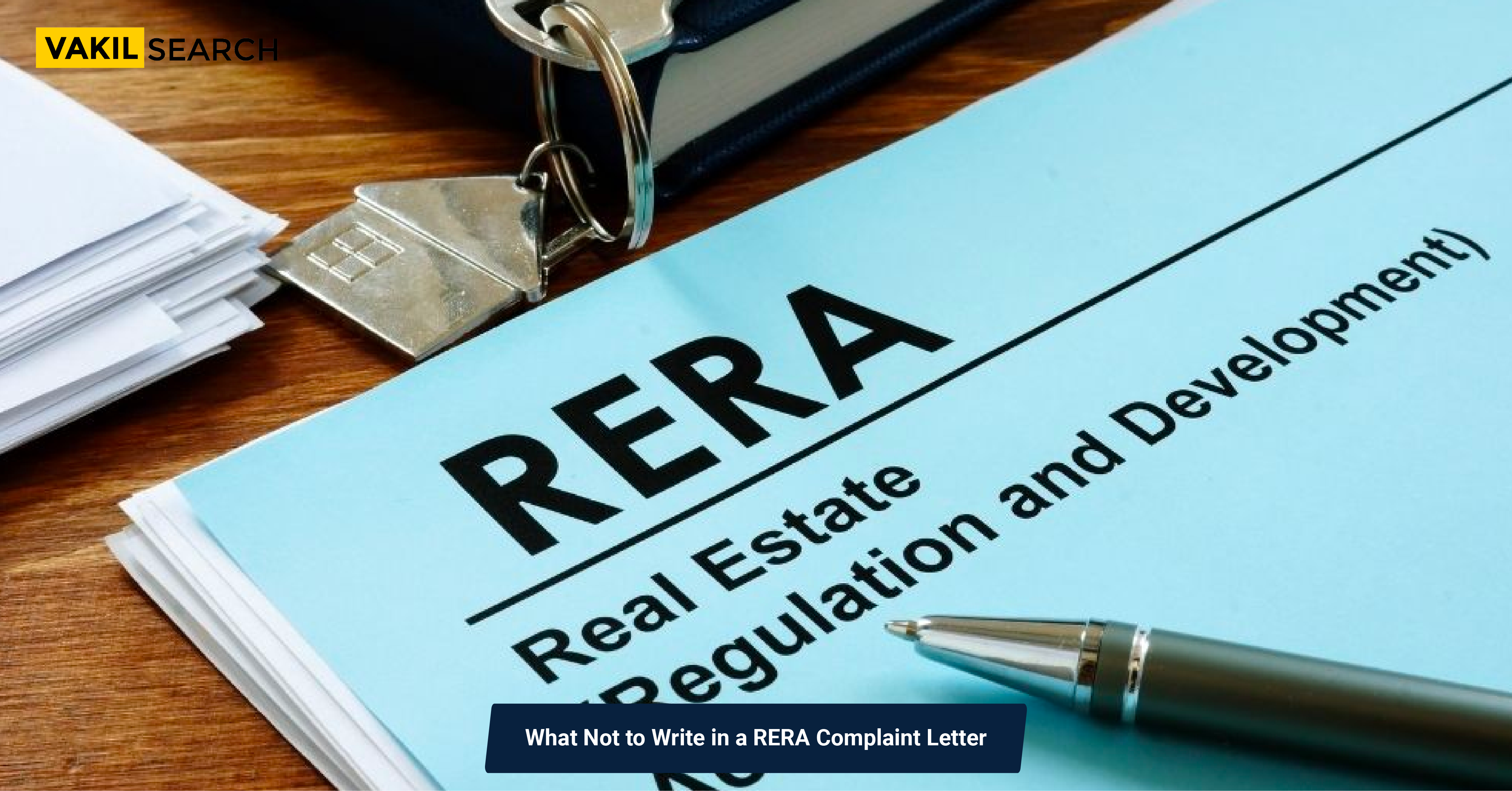Discover the best tips for writing a RERA complaint letter effectively. Avoid mistakes and follow expert advice for a successful resolution of your real estate dispute in India.
Overview
When it comes to addressing issues related to real estate in India, filing a complaint with the Real Estate Regulatory Authority (RERA) is the first step towards finding a resolution. However, writing a RERA complaint letter requires careful consideration and adherence to specific guidelines.
In this article, we will discuss what not to include in your RERA complaint letter to ensure your message is effective, concise, and well-received.
Why Is a Well-Written RERA Complaint Letter Important?
Before looking into what to avoid in your RERA complaint letter, let’s understand why a well-structured and well-written letter is crucial:
Clarity: A clear and concise complaint letter helps RERA authorities understand your concerns, increasing the likelihood of a favorable resolution.
Legitimacy: A properly drafted letter adds credibility to your complaint, demonstrating that you are serious about addressing the issue.
Documentation: Your complaint letter serves as essential documentation for the RERA authorities, providing a record of your grievances and demands.
Now that we’ve established the importance of a well-crafted RERA complaint letter, let’s explore what you should avoid when composing one.
What Not to Include in Your RERA Complaint Letter?
-
Emotional Language
While it’s natural to feel frustrated or angry about real estate issues, avoid using emotional language in your complaint letter. Instead, focus on the facts, providing a clear and objective account of the problem.
Here’s an example:
Avoid: “I can’t believe how they cheated me! This is outrageous!”
Better: “I am writing to report a discrepancy in the property’s square footage, which was not as initially promised in the sales agreement.”
-
Personal Attacks
Refrain from making personal attacks against individuals or parties involved. Attacking someone personally can weaken your case and may lead to legal consequences. Stick to the facts and avoid derogatory language.
-
Ambiguity
Ensure your complaint is clear and specific. Vague or ambiguous complaints can lead to confusion and delays in the resolution process. Include precise details such as property address, date of purchase, and relevant agreements.
-
Excessive Detail
While it’s crucial to provide necessary details, avoid overwhelming the reader with excessive information. Stick to the key points of your complaint, making it easier for RERA authorities to understand your case.
-
Legal Jargon
Avoid using too many complex legal terminologies or jargons in your complaint letter. Keep the language simple and straightforward. This ensures that your message is accessible to a wider audience and prevents misunderstandings.
-
Unsubstantiated Claims
Back your claims with evidence. Include documents such as contracts, receipts, or photographs that support your case. Unsupported allegations may not carry much weight.
-
Threats
Do not include threats or ultimatums in your complaint letter. Instead, express your desire for a fair resolution and cooperation with RERA authorities.
-
Irrelevant Information
Stick to the issue at hand. Including unrelated grievances or complaints in your letter can make it harder for RERA authorities to address your primary concern.
-
Longwindedness
While it’s essential to be thorough, avoid making your complaint excessively long. Long, rambling letters can be challenging to read and may result in important details getting lost.
-
Inaccuracies
Double-check all information in your letter for accuracy. Providing incorrect details can undermine your credibility.
FAQs
Can I file a RERA complaint without a lawyer?
Yes, you can file a RERA complaint without a lawyer. However, it's always advisable to seek legal advice from experts with the help of Vakilsearch to ensure that your rights are protected.
Is there a time limit for filing a RERA complaint?
There time limit for filing a RERA complaint varies typically on a case-to-case basis. Request a free consultation with our experts to understand whether you are eligible to file a RERA complaint.
What happens after I submit my RERA complaint?
After submitting your complaint, RERA authorities will review it, and if it meets the required criteria, they will proceed with the dispute resolution process, which may include mediation or adjudication.
The Takeaway
In conclusion, a well-structured and professionally written RERA complaint letter is essential for resolving real estate disputes in India.
By avoiding emotional language, personal attacks, and other common pitfalls, you can increase the chances of a successful resolution to your grievance. Remember to stay focused on the facts, provide supporting evidence, and maintain a respectful tone throughout your complaint letter.
Don’t let your real estate concerns go unanswered. Contact Vakilsearch today to get started on your RERA complaint against builders who have started from the letters of the law!
Read more:-
- Unregistered projects not exempted from RERA
- Gujarat Real Estate Regulatory Authority
- The process to get RERA Certificate Online



